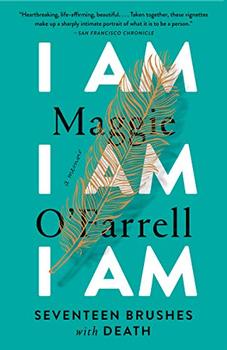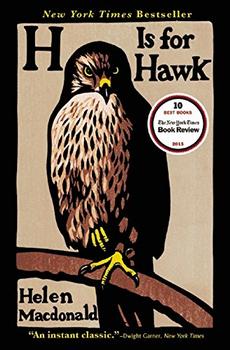Summary | Excerpt | Reviews | Beyond the book | Read-Alikes | Genres & Themes | Author Bio

A Diary
by Heidi JulavitsHeidi Julavits, author of four novels and co-founder of the literary magazine, The Believer, turns to nonfiction in The Folded Clock: A Diary, which she describes as "an accounting of two years of my life."
That's a deceptively simple description for a book that is far from simple, either in structure or content. Structurally Julavits' diary is comprised, as you might expect, of writings dated by day and month. No respecter of chronology, what Julavits does not do is state the year of each. Open the book at random and you might find that an entry dated September 9 is followed by November 3 – so far so good - but then comes October 26 and July 31. On any given day, she might be in New York, where she teaches, or Maine, where she writes, or Germany where her writer-husband worked for a while, or even in Italy, at an art colony. At face value, this might seem confusing and potentially off-putting, but it is all part of the magic.
Then there is the content. For two years Julavits wrote diary-type short essays, each starting with the phrase "Today I..." (or a variant) using the starting line as "a portal to other days." When she realized she had enough material for a book she selected entries where she came out looking "worse than anyone else," ordering them until she arrived at an experience that was varied both in terms of emotions and topics.
Indeed, every entry in The Folded Clock starts with the word "Today," but this is not a diary of events and happenings: this is far more a journal of the mind. Each "Today" moment serves as a setting off point for Julavits' sharp wit, her observation and her unblinking consideration of themes as wide-ranging as AIDS, The Bachelor television series, yard sales, time, Hitler, friendship, marriage, self-esteem and parenting. Julavits is a highly literate, warm and self-deprecating essayist who candidly shares her experiences and thoughts. This forty-something mother of two constantly surprises, starting entries with lines like "Today I trespassed at twilight," "Today we went to a party where the food was very tiny," and "Today I talked with an artist and a poet about luck." A particularly enjoyable aspect of The Folded Clock is that with each new entry, even after the first sentence, the reader has no idea what Julavits is going to say next.
As the diary progresses, Julavits reveals herself as a master of wry humor. On a visit, entertainingly described as "a date" with her husband to the Wannsee Conference House near Berlin, she notes that the house is "a villa much like ours, save for the fact that in its dining room on January 20, 1942, Eichmann, Heydrich, Muller, and other notable Nazis gathered to draw up their official Jewish extermination plan, euphemistically referred to in the conference minutes as the 'Final Solution.'" What unfolds in Julavits' mind during their tour is an argument, all in her head. "As I trailed my husband," she writes, "I continued our heated dispute to which only I was party." Her ability to dwell in the moment and really mine out her thought processes – as charmingly esoteric as they sometimes are – makes this book a pleasure to read.
Another good example is an entry that begins "Today I found a Rolodex in a trash can at JFK." This Rolodex of family photographs, which she discovers quite at random, is the starting point for a humorous discussion about airport security and also some imaginative flights of fancy where she manages to compare the discarding of the Rolodex to her decision to leave her first husband. Indeed, the Rolodex is one of several recurring themes and ideas that ground and connect The Folded Clock. Like her own diary, the Rolodex contains snapshots of ordinary people living their lives.
Heidi Julavits is first and foremost a writer — someone who talks about her craft and has composed and deliberately structured this diary in a non-linear form, yet there is an overarching sense of candor and honesty in The Folded Clock that makes it a memorable and admirable piece of work. Highly recommended.
![]() This review was originally published in The BookBrowse Review in June 2015, and has been updated for the
March 2016 edition.
Click here to go to this issue.
This review was originally published in The BookBrowse Review in June 2015, and has been updated for the
March 2016 edition.
Click here to go to this issue.

If you liked The Folded Clock, try these:

by Maggie O'Farrell
Published 2019
An extraordinary memoir - told entirely in near-death experiences - from one of Britain's best-selling novelists, for fans of Wild, When Breath Becomes Air, and The Year of Magical Thinking.

by Helen Macdonald
Published 2016
Winner of the 2015 BookBrowse Nonfiction Award
Obsession, madness, memory, myth, and history combine to achieve a distinctive blend of nature writing and memoir from an outstanding literary innovator.
Your guide toexceptional books
BookBrowse seeks out and recommends the best in contemporary fiction and nonfiction—books that not only engage and entertain but also deepen our understanding of ourselves and the world around us.